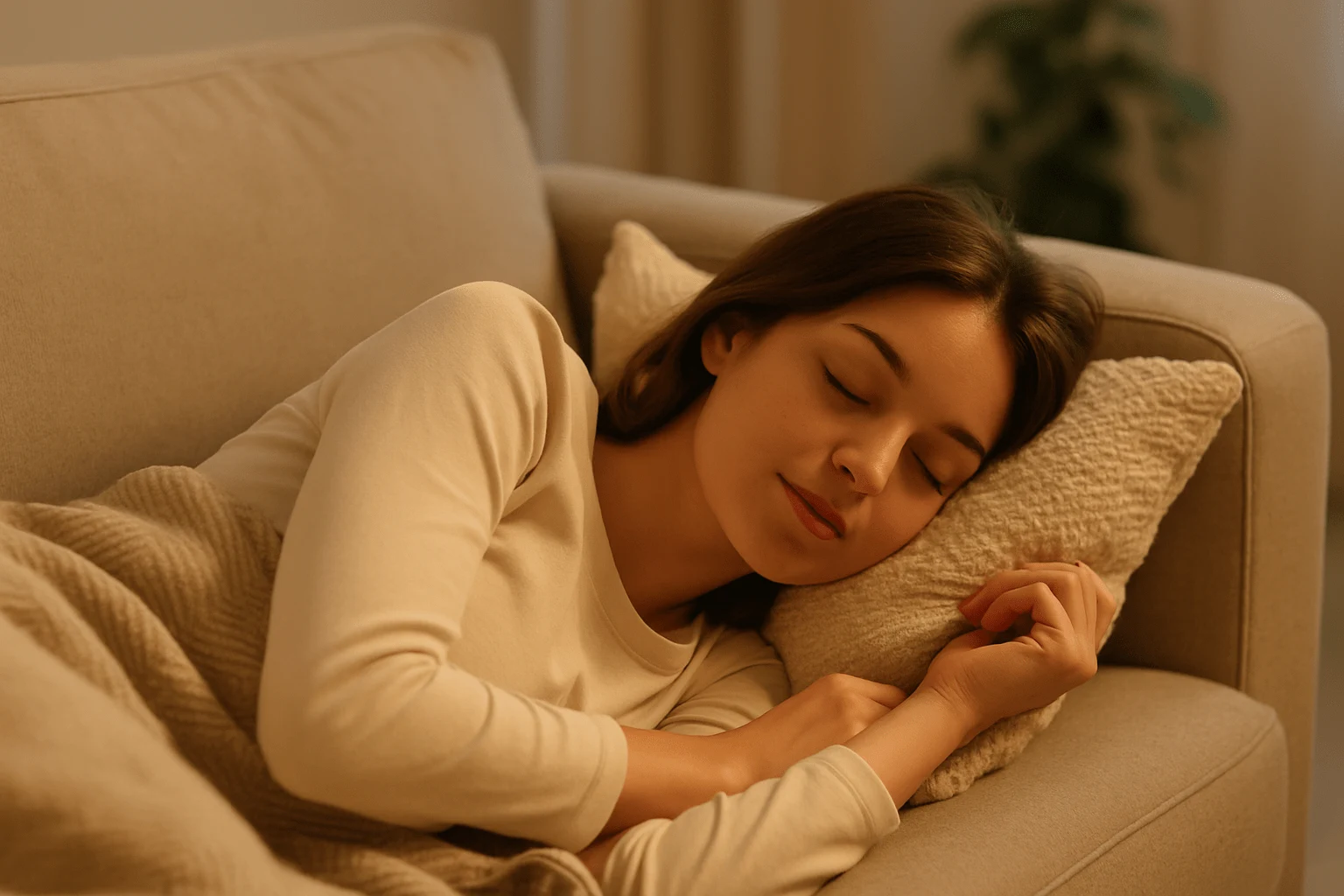Sometimes your bed just doesn’t feel like the right place to fall asleep—even when you’re tired. You might lie down, close your eyes, and hope for rest, only to find your mind spinning and your body resisting. Meanwhile, the couch seems to invite sleep without much effort at all.
If this sounds familiar, you’re not alone. Many people experience better sleep on the couch than in their own beds. And while it may seem odd at first, there are some very real reasons why this happens.
Let’s explore why your couch might be helping you sleep better when your bed can’t—and what you can do to make your bedroom feel restful again.
1. Your Couch Is More Comfortable
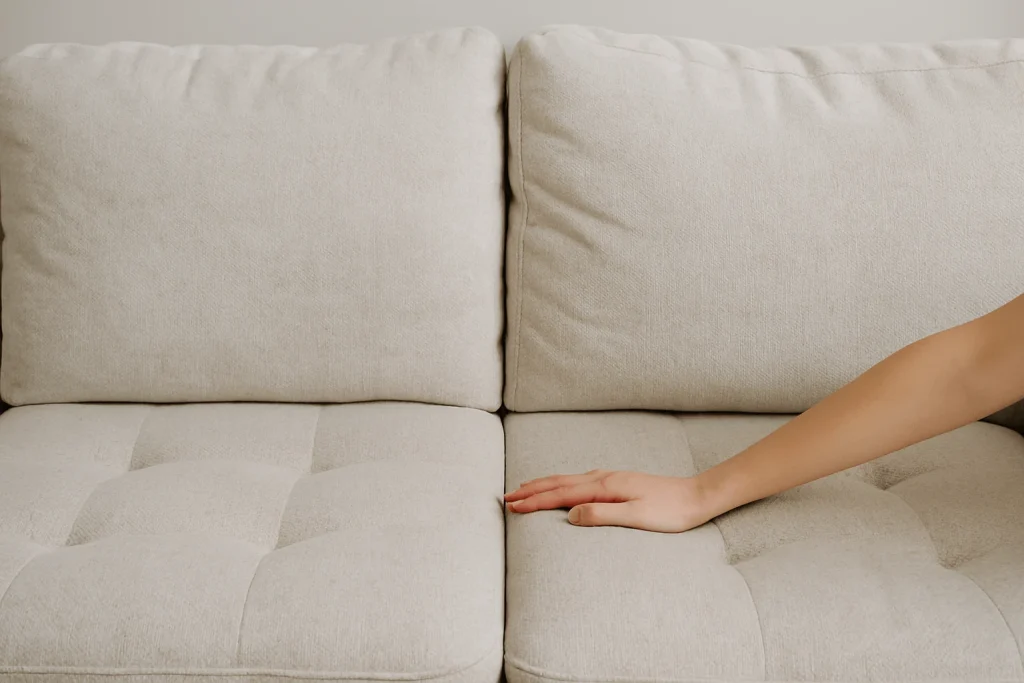
Comfort is a huge factor in how quickly you fall asleep. Some couches strike just the right balance of softness and support, especially if you’re dealing with back pain, a stiff neck, or achy hips. Compared to a mattress that may be too firm, too soft, or just worn out, the couch might feel better simply because it matches your body’s needs more closely.
Many couches also have plush cushions you can adjust to support different parts of your body. And because they’re usually lower to the ground, getting in and out of them can feel easier—especially if mobility is a challenge.
If you sleep better on the couch, try experimenting with your bed setup to improve sleep quality. A supportive pillow, a foam topper, or a different sleep position can make a noticeable difference. The goal isn’t to replicate your couch, but to create a sleep surface that truly works for you
2. Your Couch Is in a Relaxing Environment
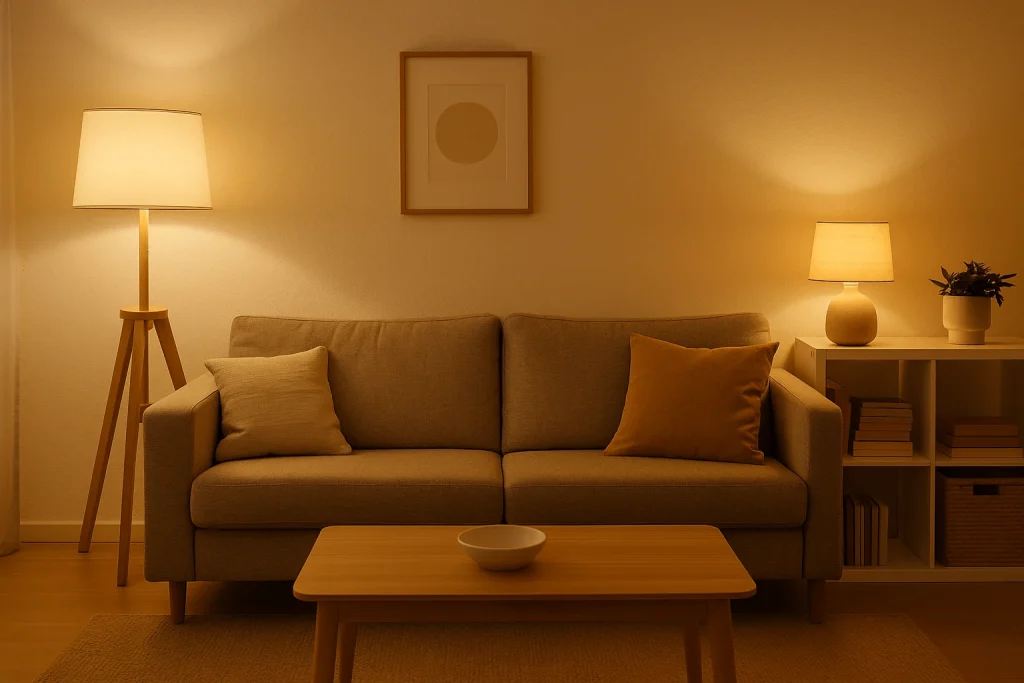
The setting where you fall asleep matters more than we often realize. Bedrooms can sometimes become tied to stress—especially if it’s where you spend time working, worrying, or replaying the day’s events.
Your living room, on the other hand, might carry fewer emotional associations. It might be where you read, watch shows, or simply rest without pressure. These subtle environmental cues tell your brain, “You’re safe here. It’s okay to let go.”
If you’re dealing with sleeping problems in the bedroom, think about how your sleep environment makes you feel. Are there tasks calling your attention? Clutter that creates stress? Try shifting a few things to make the space feel lighter—dim the lights, clear off surfaces, or add a few calming touches like soft textures or a favorite scent.
3. Your Couch Is Associated With Leisure Activities
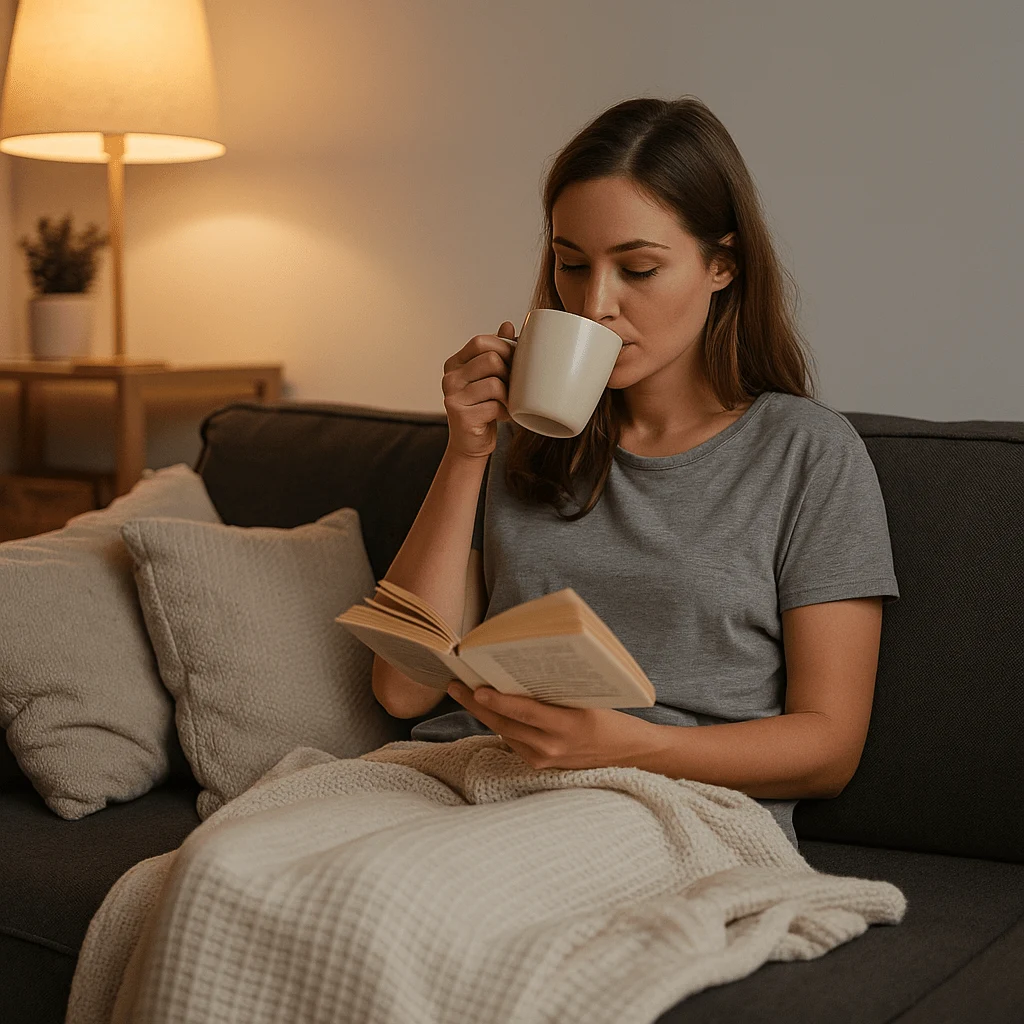
Where we relax regularly becomes a place our body learns to relax automatically. If you often read, sip tea, or unwind with a movie on the couch, your brain begins to associate that location with ease.
Even if you’re not actively doing anything on the couch, your body may respond with a sense of calm. Contrast that with the bed, which may have become linked with sleepless nights, restlessness, or scrolling on your phone.
To reshape those associations, try introducing similar calming rituals in your bedroom. That could mean listening to soothing music, turning on a low amber light, or reading a few pages of a book before sleep. Over time, your brain will begin to shift its expectations for that space.
4. Your Bed Is Too Hot or Too Cold
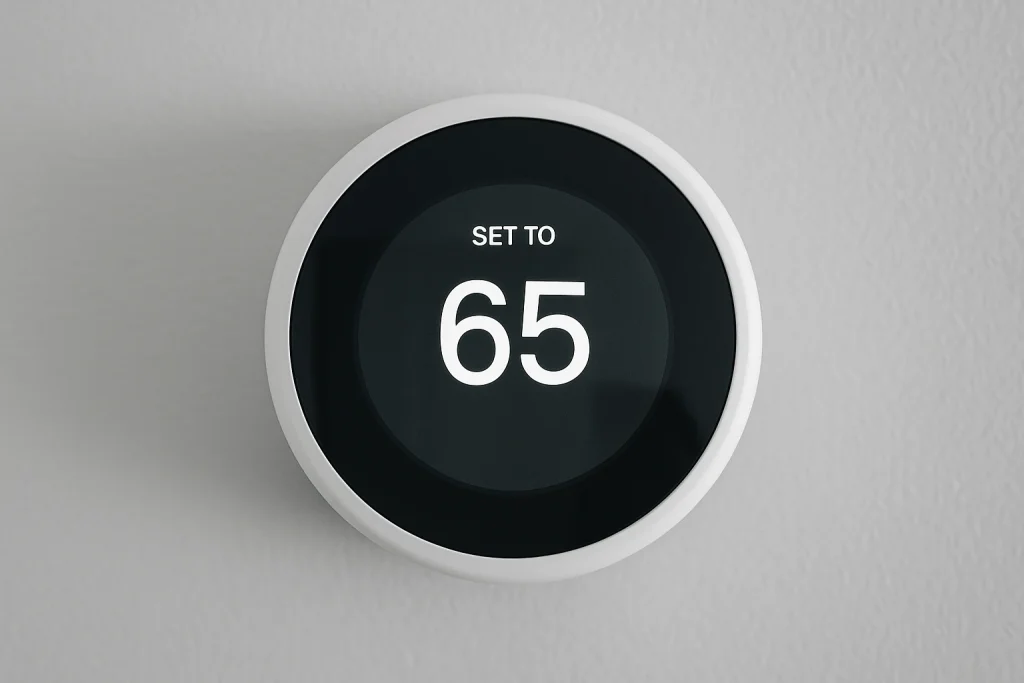
Temperature plays a big role in sleep. If your bed runs too warm, it can interfere with the natural cooling process your body needs to fall asleep. You might wake up sweating or feel restless. If it’s too cold, you may find yourself shivering or feeling stiff by morning.
Living rooms sometimes stay at a more moderate, comfortable temperature—especially if there’s better air flow or you’re using lighter blankets. That could explain why falling asleep naturally is easier on the couch.
Experts generally recommend a room temperature between 60 and 67 degrees Fahrenheit for optimal sleep. If you’re not sure where to start, try layering breathable bedding or adjusting airflow with a fan or window. Even small tweaks can help your body settle more easily.
5. Your Bed Is Associated With Stress
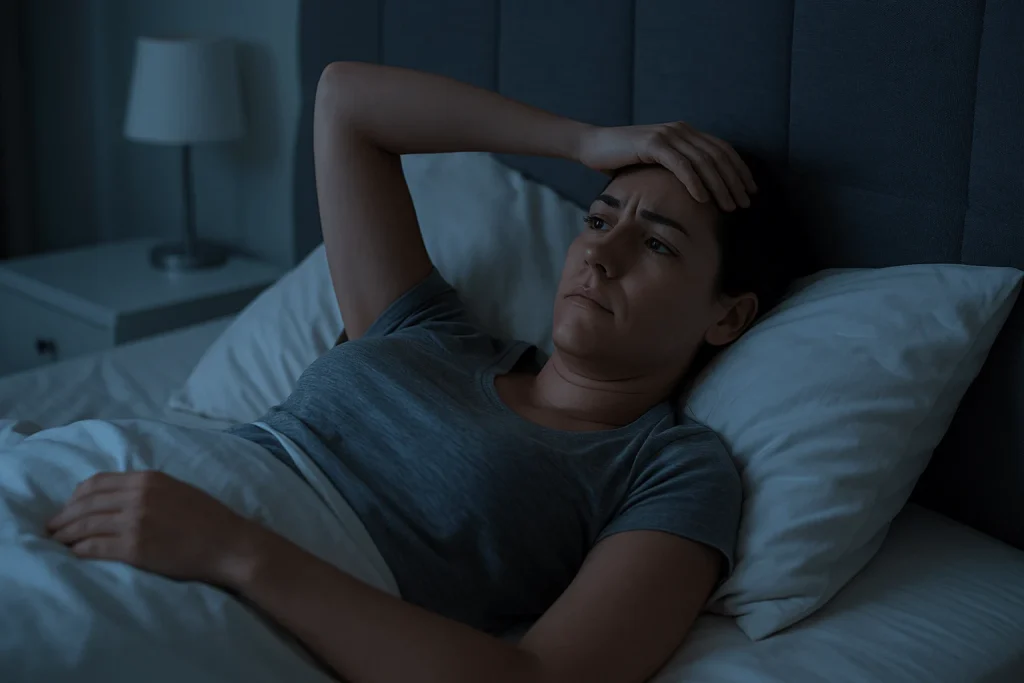
If you’ve spent night after night tossing and turning, your brain may start linking the bed with wakefulness, not rest. Over time, just walking into the room or pulling up the covers can bring on a sense of tension.
That association builds up quietly. Maybe you check your phone in bed or lie awake worrying about the next day. Even if you’re doing “nothing,” your brain is still learning that the bed equals being alert.
One helpful reset is to use your bed only for sleep and intimacy. If you can’t fall asleep within 20 minutes, get up and do something quiet in another room—like stretching, journaling, or sipping herbal tea—and return only when you feel drowsy.
This helps rewire the connection between bed and sleep over time and supports healthier bedtime routines.
How to Get a Good Night’s Sleep in Bed
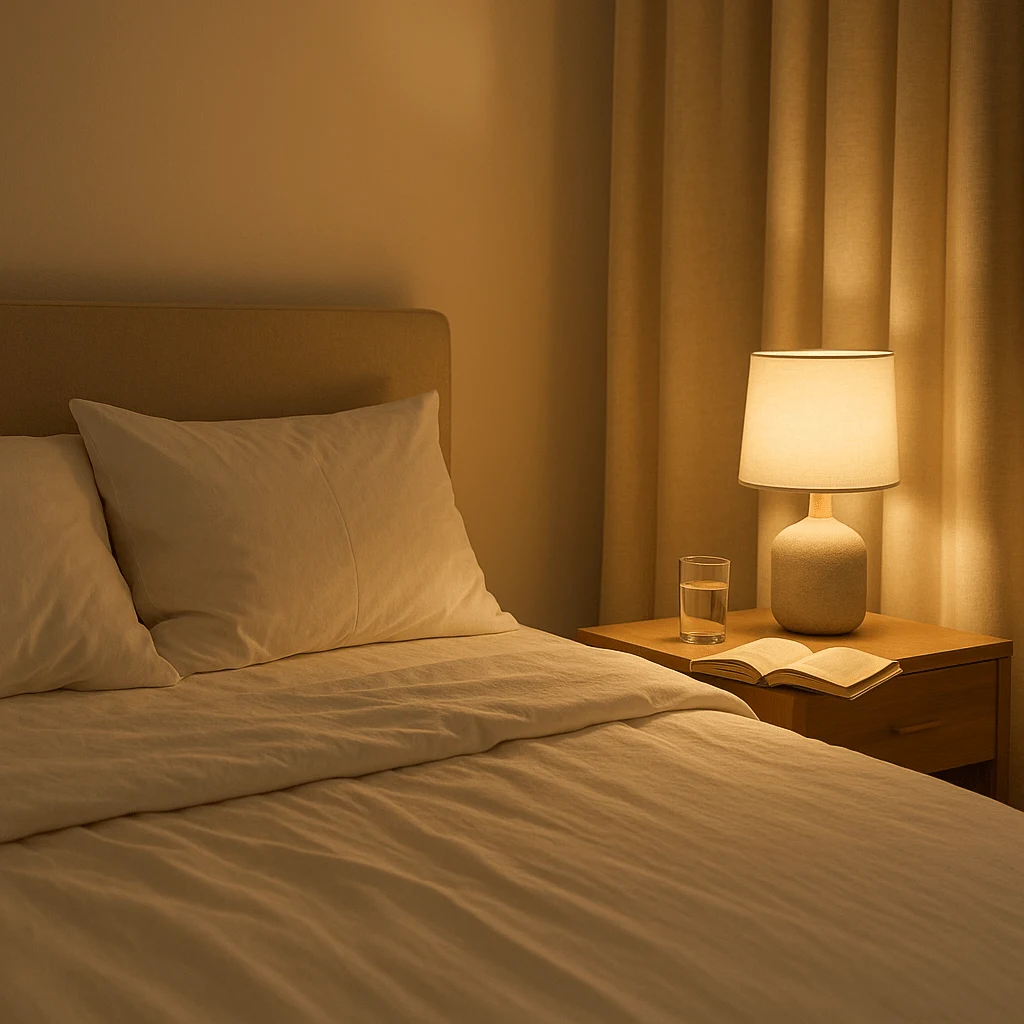
Sleeping better in bed often starts with small changes. Here are some steps to help you shift the experience and rebuild comfort, one night at a time:
Make Sure Your Bed Is Comfortable
Your mattress doesn’t need to be brand new, but it should support your body without causing pain. If you wake up sore or notice lumps or dips, it may be time to reevaluate. Try adding a mattress topper or using pillows to better align your body.
Side sleepers might benefit from a pillow between the knees, while back sleepers often need support under the knees or lower back. Test what feels best for you. These small changes can make your bed feel more like your couch and support your sleep environment.
Create a Relaxing Bedtime Routine
Routines help signal to your body that it’s time to unwind. This could mean dimming the lights, taking a warm shower, reading a book, or listening to soft music. The goal isn’t perfection—just consistency.
Avoid screens and bright lights in the hour before bed, as they can interfere with melatonin production and make it harder to fall asleep naturally.
Related: Personalize Your Night Routine for Better Sleep
Associate Your Bed with Sleep Only
Try not to watch TV, work, or scroll on your phone while in bed. If you do, your brain may start linking the bed with stimulation instead of rest.
And if you’re lying awake too long, it’s okay to get up and return later. You’re helping your brain build a new, healthier connection to your sleep space and shift away from the habit of sleeping only on the couch.
Make Sure Your Bedroom Is Dark, Quiet, and Cool
Darkness helps your body produce melatonin—the hormone that signals sleep. Use blackout curtains, an eye mask, or dim lighting in the evening to support this natural rhythm.
Noise matters too. A white noise machine, fan, or soft earplugs can block out disruptive sounds. And for temperature, most people rest best around 60–67°F. These changes help transform your bedroom into a more supportive sleep environment.
Avoid Caffeine and Alcohol Before Bed
Caffeine can stay in your system for hours and may affect sleep even if consumed in the afternoon. Alcohol might make you feel sleepy at first, but it often leads to poor-quality sleep later in the night.
Instead, try a warm, non-caffeinated drink like herbal tea in the evening to help your body wind down. These small habit changes are part of improving your bedtime routine for better sleep.
Related : 7 Herbal Teas That Help You Sleep Fast
Get Regular Exercise
Physical activity supports better sleep, but timing matters. Aim for movement earlier in the day or early evening, as exercising too close to bedtime can leave you feeling too alert.
Even a short daily walk can help your body rest more easily at night and improve your ability to fall asleep in bed rather than just the couch.
See a Doctor If You Have Trouble Sleeping
If you’ve made changes and sleep still feels out of reach, it may be time to speak with your doctor. Conditions like sleep apnea, restless legs syndrome, or chronic insomnia are common and treatable.
Getting personalized support can be a turning point in your sleep journey.
Related: The Most Overlooked Sleep Disorders ( and How to Spot Them Early)
Still Falling Asleep on the Couch? You’re Not Alone

I remember a time when my bed felt like the last place I could relax. I would lie there, thinking, worrying, adjusting the pillows, and waiting for sleep to come. But most nights, it didn’t.
Then one evening, I nodded off on the couch with a book still open in my lap. No pressure. No expectations. I woke up feeling better than I had in weeks.
That moment helped me realize it wasn’t about the couch—it was about how I felt in that space. And with a few changes, I slowly helped my bedroom feel safe again too.
If you find yourself wondering why you can’t fall asleep in bed but can sleep on the couch, know that you’re not alone. Try one small change tonight. Whether it’s dimming the lights earlier or switching off your phone an hour before bed, it all adds up.
Your bed can become a place of rest again—and it starts with meeting yourself where you are.

You May Also Like:

